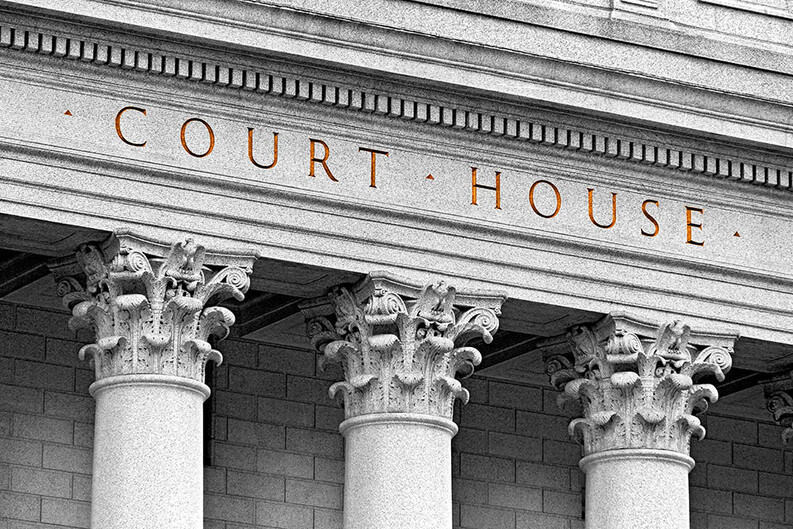VA Defies Court Orders to Release Documents Sought by Poisoned Veterans

On February 27, 2018, Judge Victor A. Bolden of the U.S. District Court of Connecticut ordered the Department of Veterans Affairs (VA) to show cause why it should not be held in contempt because of its “repeated failure to comply” with court orders requiring documents to be handed over in a timely manner.
For over two years, the VA has stonewalled veterans seeking documents about its handling of benefits for the hundreds of thousands of Marines and sailors who unknowingly drank, cooked with, and bathed in contaminated water that supplied Marine Corps Base Camp Lejeune for the latter part of the 20th century, according to students from the Veterans Legal Services Clinic, who are representing veterans affected in the case.
"It is traumatic enough to be denied benefits for their own illnesses, but many of these veterans also lost loved ones or saw their children permanently disabled by the drinking water.” — Shikha Garg ’19
Judge Bolden required that the order be served on VA Secretary David Shulkin to ensure “that this matter is raised to the highest levels within the VA.”
The Few, The Proud, The Forgotten; Vietnam Veterans of America; and the Connecticut State Council of Vietnam Veterans of America first requested records under the Freedom of Information Act on December 7, 2015. The three veterans’ advocacy groups filed suit in April 2016 after the VA did not respond. Over the course of the two-year litigation, the VA has failed “to produce information as promised on July 10, 2017, July 24, 2017, October 20, 2017, and January 12, 2018,” wrote Judge Bolden in his order.
Between 1953 and 1987, nearly one million Marines, sailors, civilian employees, and military family members aboard Marine Corps Base Camp Lejeune were exposed to dangerous toxins through the water on the base in one of the worst toxic contamination events in U.S. history, according to the lawsuit. The toxic water caused serious illnesses, including bladder cancer, leukemia, kidney cancer, and liver cancer. Veterans are entitled to benefits for disabilities resulting from or exacerbated by their military service, including those caused by toxic exposure, but the VA has denied the overwhelming majority of disability claims from Camp Lejeune veterans.
Since 2012, the VA has made it even more difficult for affected Marine veterans to obtain the benefits they rightfully deserve, by quietly requiring Camp Lejeune veterans’ claims to be evaluated by a so-called “Subject Matter Expert” (SME). Little is known about how this program operates or how the SMEs are chosen, except that the grant rate for Camp Lejeune related claims dropped from 25% to 8% and that some veterans were denied based on opinions plagiarized from Wikipedia, according to the clinic. Seeking answers, plaintiffs asked for records about the secretive Camp Lejeune Subject Matter Expert program.
Mike Partain, Co-Founder of The Few, The Proud, The Forgotten, a group dedicated to protecting the rights of Marine veterans, civilian employees, and families who were exposed to the toxic water, said, “After all this foot dragging, you have to wonder just what is behind the curtain we are attempting to draw back for all to see. Veterans are dying while we wait for answers.”
VVA National President John Rowan noted, “This is yet another instance of the Executive branch strategy regarding any and all toxic wounds and exposures to toxins through the last 8 Presidents: Delay, deny, until they all die. This must end now, for the sake of veterans and their families of all generations.”
“The VA’s disrespect for the law and these veterans is unacceptable, said Shikha Garg ’19, a law student intern in the Yale Veterans Legal Services Clinic. “Not only are these veterans—who were poisoned by their own government—entitled to records under the Freedom of Information Act, they are owed answers by any standard of decency. It is traumatic enough to be denied benefits for their own illnesses, but many of these veterans also lost loved ones or saw their children permanently disabled by the drinking water.”
Plaintiffs in this case are represented by law student interns Shikha Garg, Jacob Gelman ’18, Corey Meyer ’19, and Helen White ’18, and supervising attorney Aaron Wenzloff of the Yale Law School Veterans Legal Services Clinic. The clinic, founded in the fall of 2010, represents individual veterans and veterans’ organizations on a range of matters.


